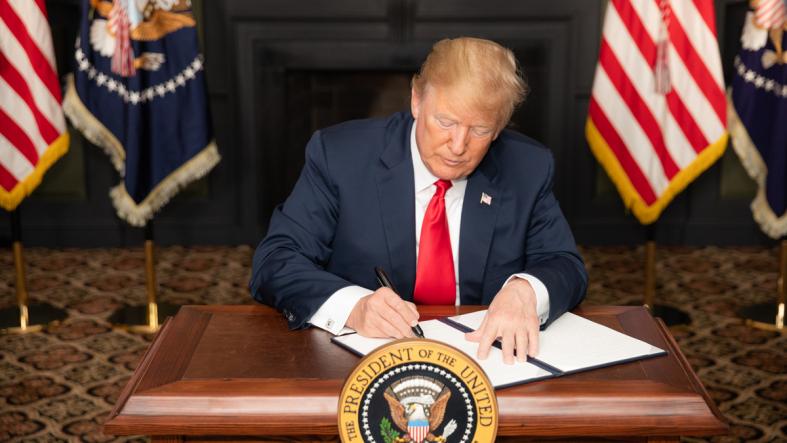Words by Venice Hancock, News Sub-Editor.
The beginning of 2020 saw the world hold its breath as it watched tensions suddenly rise between the United States and Iran, after General Qasem Soleimani was killed in Iraq by an American air raid on January 3. General Soleimani was one of the most important and respected figures in Iranian military.
The General was responsible for hundreds of American deaths and the White House has asserted that he was planning an attack against the United States, using this as a justification for the operation. However, many politicians in both parties have questioned this decision, calling it risky and potentially harmful to America’s overall interests, exposing the United States’ lack of a consistent approach to foreign policy.
In Iran, the killing of General Soleimani instigated widespread protests throughout Teheran just three days after the events. Some Iranians were calling for revenge against the United States, as well as a general de-escalation of tensions in hopes to avoid what would be a devastating war. The popular gathering for General Soleimani’s funeral in the streets of Teheran was so massive, 50 people were trampled by the crowd and eventually lost their lives.
Iran promised a “military response” and “hard vengeance” to the actions of the Americans. Donald Trump in turn promised another “major response” and also threatened 52 of Iran’s important cultural sites. 52, referencing the number of Americans held hostages for a year in Teheran in 1979.
On January 8, Iran bombed two American military bases in Iraq as reprisal for the airstrikes that killed General Soleimani. Iran had warned Iraq that it would be carrying out this attack. There were no casualties and this was confirmed by President Trump however, Secretary of State Mike Pompeo contented that the attack had intended to kill.
Iraq has addressed the United Nations about the events, asking that the Security Council condemn the American airstrikes, declaring that the operation represented “a dangerous breach of Iraqi sovereignty and of the terms of US presence in Iraq.” While Iraq is not a member of the Security Council, it could potentially call for the fifteen countries on the Council to unite and discuss the issue. NATO has also called for restraint from both countries and immediate de-escalation of tensions, contending that further military actions or even another war would be extremely detrimental to the region.
Democrats in the House of Representatives voted to pass a motion that would limit Donald Trump’s military powers to launch operations in Iran on January 1O. However, it is unlikely to pass in the Senate, where Republicans hold the majority.
The story continued to unfold when a Ukraine International Airlines Boeing 737 was shot down after it took off it Teheran, killing all 176 passengers and crew members on board. The catastrophe took place on January 8th and sparked a wave of popular discontent. Iranians accused the government of taking too long to admit the truth about what had really happened to the plane. Days after the disaster, Iranian authorities confirmed that the plane had been shot down by Iranian missiles, due to “human error”. Authorities also blamed the heightened state of security due to tensions with Washington as a cause for this mistake. Iranian President Hassan Rouhani expressed his condolences by stating that “The Islamic Republic of Iran deeply regrets this disastrous mistake. My thoughts and prayers go to all the mourning families. I offer my sincerest condolences”.
The tragedy has attracted worldwide attention as the plane’s passengers were primarily Iranian and Canadian. Ukrainian President Volodymyr Zelensky as well as Canadian Prime Minister Justin Trudeau have both called for justice for the families and a more thorough investigation. In a statement Prime Minister Trudeau asserted that “What Iran has admitted to is very serious. Shooting down a civilian aircraft is horrific. The question of responsibility I think takes us a step forward to having a credible investigation.”
Overall, this tragic and disastrous event has seemingly shifted attention away from tensions with the United States. Popular support in Iran appears to have waned, after a widespread feeling of anger against Iranian authorities as a result of this fatal error. Over in the United States, anti-war and anti-government movements seem to remain strong ever since Donald Trump’s very first day in office but do not appear to have much effect on the President’s decision making.
The future of U.S-Iraqi relations remains uncertain as both countries maintain a state of high alert.
[Image Credit: DipNote]

